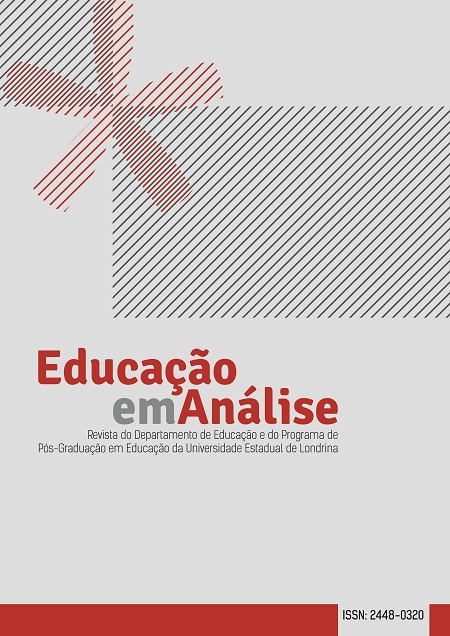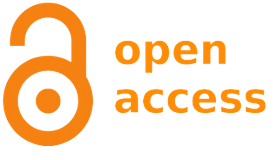Digital literacy and tutoring in the distance education environment: a state-of-the-art study
DOI:
https://doi.org/10.5433/1984-7939.2016v1n2p258Keywords:
Tutor in distance education, Didactic competence, Technological literacyAbstract
This article aims to address the relationships between the virtual tutor and his/her competencies in distance education programs, considering it in the field of literacy and digital literacy, as reflected in the studies published in ANPED. By way of state of the art, there was a survey of publications between 2009 and 2013, circumscribed to the following working groups: GT08 Teacher Training; GT09 Work and Education; GT10 Literacy, Reading and Writing; GT11 Policy of Higher Education; and GT16 Education and Communication. The results show the predominance of qualitative research, which recognize mostly the relevance of the tutor's role in distance education, especially as its mediating function. They still show that, despite the applicant's concern with the tutor skills for transit in the virtual environment, references to skills related to digital literacy are relegated to the background in favor of other concerns: implications of ICT for teaching; tutoring and job insecurity; (under)utilization of ICT in the teaching-learning process etc. The results show, finally, the need for more research involving tutor’s digital literacy with a view to their political implications for training and for teaching in distance education.Downloads
References
CASTELLS, Manuel. A galáxia da internet: reflexões sobre a internet, os negócios e a sociedade. Rio de Janeiro: Jorge Zahar, 2003.
DIONISIO, Angela Paiva. Gêneros textuais e multimodalidade. In: KARWOSKI, Acir Mário et al. Gêneros textuais: reflexões e ensino. 4. ed. São Paulo: Parábola Editorial, 2011. p. 137‐152.
FLICK, Uwe. Uma introdução à pesquisa qualitativa. Porto Alegre: Artmed, 2009.
GIORDAN, Marcelo. Uma perspectiva sociocultural para os estudos sobre elaboração de significados em situações de uso do computador na Educação em Ciências. 2006. 315 f. Tese (Livre Docência) ‐ Faculdade de Educação, Universidade de São Paulo, São Paulo, 2006.
KLEIMAN, Ângela B. Os significados do letramento. São Paulo: Mercado de Letras, 1995.
KLEIMAN, Ângela B. Preciso “ensinar” o letramento? Não basta ensinar a ler e a escrever? Barão Geraldo: Cefiel/IEL/ Unicamp, 2010. (Coleção Linguagem e Letramento em Foco: linguagem nas séries iniciais).
KLEIMAN, Ângela B. Projetos de letramento na educação infantil. Campinas: Mercado de Letras, 2009.
LÉVY, Pierre. Cibercultura. 3. ed. São Paulo: Ed. 34, 2010.
MAIA, Carmem; MATTAR, João. ABC da EAD: educação a distância hoje. São Paulo: Pearson, 2007.
MARCUSCHI, L. A. et al. Letramento e oralidade no contexto das práticas sociais eventos comunicativos. In: SIGNORINI, Inês (Org.). Investigando a relação oral/escrita e as teorias do letramento. Campinas: Mercado de Letras, 2001. (Coleção Ideias sobre Linguagem).
MILL, D. Sobre o conceito de polidocência ou sobre a natureza do processo de trabalho pedagógico na educação a distância. In: MILL, D.; OLIVEIRA, M. R. G.; RIBEIRO, L. R. C. (Org.). Polidocência na educação a distância: múltiplos enfoques. São Carlos: EDUFSCar, 2010. p. 23‐40.
MINAYO, Maria Cecília de S. (Org.). Pesquisa social. 21. ed. Petrópolis: Vozes, 2002.
ROJO, Roxane H. R. Letramento escolar, oralidade e escrita em sala de aula. Diferentes modalidades ou gêneros do discurso in letramento e oralidade no contexto das práticas sociais eventos comunicativos. In: SIGNORINI, Inês (Org.). Investigando a relação oral/escrita e as teorias do letramento. Campinas, SP: Mercado de Letras, 2001. (Coleção Ideias sobre Linguagem).
SOARES, Magda. Novas práticas de leitura e escrita: letramento na cibercultura. Educação e Sociedade, Campinas, v. 23, n. 81, p. 143‐160, dez. 2002. Disponível em: . Acesso em: 9 abr. 2017.
STREET, B. V. Letramento sociais: abordagens críticas do letramento no desenvolvimento, na etnografia e na educação. São Paulo: Parábola Editorial, 2014.
STREET, B. V. Literacy in theory and practice. Cambridge: University Cambridge, 1984.
STREET, B. V. Social literacies: critical approaches to literacy in development, ethnography and education. Harow: Pearson, 1995.
XAVIER, Antônio Carlos dos Santos. Letramento digital e ensino. Disponível em: https://www.ufpe.br/nehte/artigos/Letramento%20digital%20e%20ensino.pdf. Acesso em: 16 abr. 2015.
Downloads
Published
How to Cite
Issue
Section
License
Os artigos publicados na Revista Educação em Análise estão sob a Licença Creative Commons Atribuição 4.0 Internacional, garantindo Acesso Aberto. Deste modo, os autores mantêm os direitos autorais de seus trabalhos e, em caso de republicação, solicita-se que indiquem a primeira publicação nesta revista. Essa licença permite que qualquer pessoa leia, baixe, copie e compartilhe o conteúdo, desde que a devida citação seja feita. Além disso, autoriza a redistribuição, adaptação e criação de obras derivadas em qualquer formato ou meio, incluindo uso comercial, desde que a atribuição à revista seja mantida.
A revista se reserva o direito de efetuar, nos originais, alterações de ordem normativa, ortográfica e gramatical, com vistas a manter o padrão culto da língua e a credibilidade do veículo. Respeitará, no entanto, o estilo de escrever dos autores. Alterações, correções ou sugestões de ordem conceitual serão encaminhadas aos autores, quando necessário.
As opiniões emitidas pelos autores dos artigos são de sua exclusiva responsabilidade.









